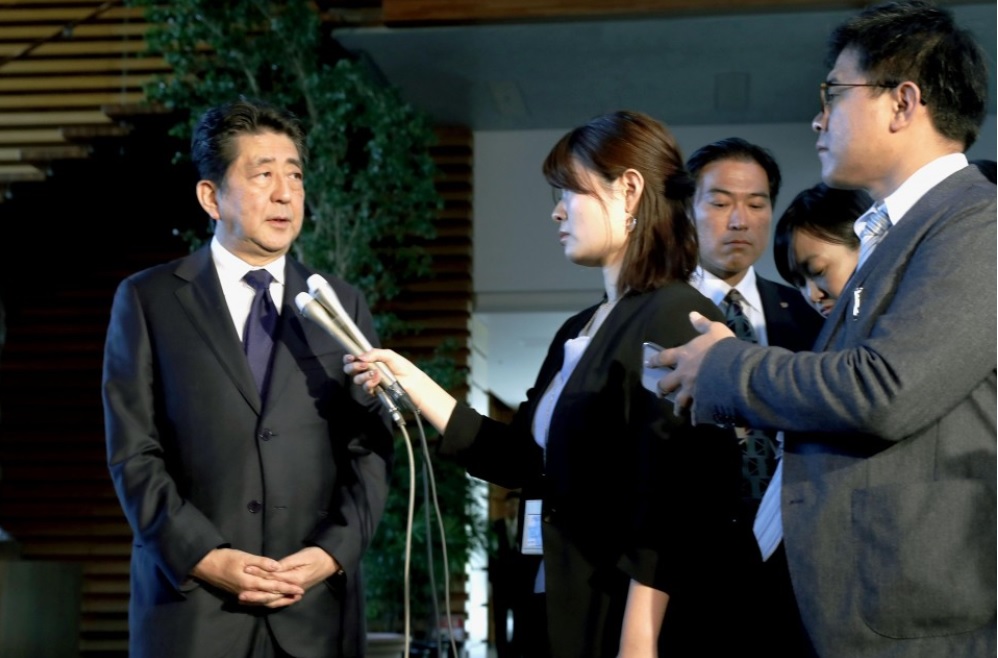Japan-funded “comfort women” foundation to be dissolved: S. Korea

SEOUL, Nov 21, 2018, Kyodo News. South Korea said Wednesday that it has decided to dissolve a foundation set up as a key pillar of a 2015 bilateral agreement with Japan to settle the issue of Korean women who were forced to work in Japanese wartime brothels, reported the Kyodo News.
The agreement, under which Japan provided 1 billion yen (about $8.8 million) to the foundation to help former “comfort women” and their families, has been unpopular in South Korea, but Seoul’s move could further strain bilateral ties.
Japan-South Korea ties have long been strained over historical grievances related to Japan’s colonial rule of the Korean Peninsula between 1910 and 1945.
They have been under added pressure after a recent South Korean Supreme Court ruling ordered a Japanese company to compensate a group of South Koreans over forced labor during World War II.
Japan immediately criticized the South Korean move, with Prime Minister Shinzo Abe saying relationships between countries cannot be sustained unless international promises are kept.
Japan and South Korea agreed in December 2015 to “finally and irreversibly” settle the comfort women issue. As part of the deal, South Korea set up the Reconciliation and Healing Foundation and used the Japanese money to hand out cash payments to the women and their families.
But the administration of President Moon Jae In, launched last year, has taken the view that the bilateral accord, reached under the previous administration of President Park Geun Hye, cannot settle the issue, and has taken steps to replace the Japanese fund with its own budget.
In September, Moon told Abe that the foundation was not functioning as intended and suggested it may need to be discontinued. Japan, for its part, stressed the importance of following through on the agreement.

In announcing the foundation’s dissolution on Wednesday the South Korean government said it plans to take legal steps to dissolve the entity.
As for the 5.78 billion won ($5.1 million) leftover from the Japanese fund, the South Korean government said it will come up with a reasonable way to spend it along with the 10.3 billion won it had budgeted to add itself, after hearing the opinions of former comfort women and others.
The South Korean Foreign Ministry plans to consult with the Japanese government over the matter, it added.
In Tokyo, reactions were swift. Vice Foreign Minister Takeo Akiba summoned South Korean Ambassador to Japan Lee Su Hoon to the Foreign Ministry to lodge a protest.
Abe, speaking to reporters, stressed that Japan has done its part by following through on the agreement, and urged South Korea to behave “in a responsible manner as a member of the international community.”
The South Korean government has said it does not intend to discard the accord or seek to renegotiate it.
The foundation was set up in 2016. It provided about 10 million yen each to former comfort women who were alive at the time the bilateral agreement was reached, while the proxies of those who had died by then were paid about 2 million yen each.
The foundation became dormant after the Park administration fell apart over scandals involving the then president. The Moon administration, launched in May 2017, has said the 2015 agreement cannot settle the long-standing issue since it failed to reflect the opinions of survivors.
Of the 47 women who were alive when the deal was reached, 34 had received cash payments by mid-November, with 58 proxies of the 199 deceased having done the same. But some survivors have rejected the money.
Comfort women refer to women who were forced to work at Japanese military brothels or women used as forced prostitutes before and during World War II in Japan and other Asian countries.